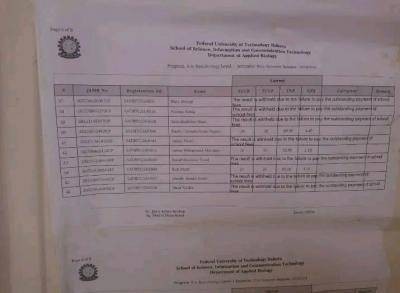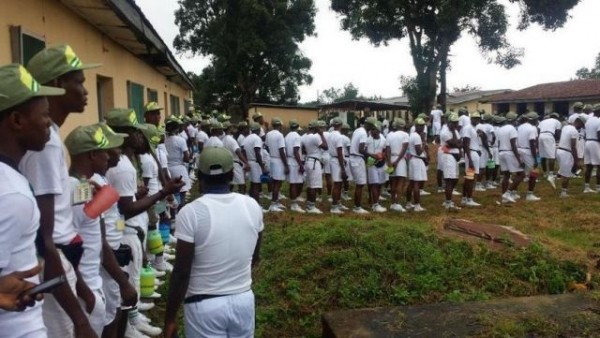
In this interview with ARUKAINO UMUKORO, a professor in the Department of Adult Education, University of Lagos, Supo Jegede proffers solutions to problems in the education sector.
There seem to be no end in sight for the strike action embarked upon by the Academic Staff Union of Universities. What does ASUU really want from the Federal Government?
What ASUU really wants from the FG is for it to have genuine interests in the education of our children and not pay lip service to education. They should do the right thing at the right time so that our children will not be moving out of the country to go to countries like Ghana, Cote D’Ivoire to read, countries where their nationals should instead come here to study.
So it is not about the money ASUU is demanding from the FG?
It is not only money. But of course, you will still talk about money when you talk about infrastructure and good policy, money must be invested. For a good policy to come out, it requires money, because a good policy is based on research. Research does not come easy, it is very costly.
Shouldn’t ASUU reach a compromise with the FG on the amount of money it requires, like it has been advised in some quarters?
The problem is this, people say, once bitten, twice shy. There have been promises and agreements signed in the past, and the FG has not honoured any of it. So, how are we sure that now that they have spoken verbally, they will honour it? That is the major problem; the trust is no more there.
Are you saying the only way is for the FG to honour every aspect of the agreement?
That is the ideal thing and the best way so that we can move forward.
You mentioned Nigerian students going to other African countries for their tertiary education. What do these countries have that Nigeria doesn’t, considering that Nigeria is richer than them?
The difference is that these countries invest in their education system and have policies that stand. Ghanaian lecturers had gone on strike in the past and that gave them the opportunity to revamp their education sector. But, there are no structures here and the people who decided to remain are not well paid. Those who cannot cope with the system have moved away. Go to engineering, medicine, and other departments, you find that our lecturers are constantly leaving the country to greener pastures elsewhere, because they are not valued in their own country.
Do you think the problem is just in the tertiary level of education in Nigeria?
No, the foundation is the problem. Like it is written in the Bible, if the foundation be destroyed, what can the righteous do? The decay started in the primary sector. As a result of lack of funding, the government pulverized the teachers, then removed the structures. When there was no more funding, the structures started dilapidating and eventually the quality dropped in our primary schools.
I’ve said it several times, when we were younger; the in-thing was to attend government-owned schools, until the primary school system was destroyed. Now, even the pepper seller wants her child to be in a private school, whether it is good or not. Nobody wants to go to public schools anymore because of the fallen standard. This decay eventually affected public secondary schools, except maybe government-private schools – model schools, the (international) university schools, Navy schools and Federal Government colleges. The real public schools are nothing to write home about today.
The decay has been there for a long time. But it started mainly with the military regime. They started it and it was a gradual decay, so much so that it affected the tertiary institutions. It began when budget allocation to education was reduced. And when the allocation is too small compared to what it should be, then there will not be enough money to run the schools. Even in so called states where they claim their schools are doing well, find out the running costs of a school for a month and compare that with the number of students in the school. That makes it difficult for the principal and school management to maintain the right standard in such school.
What is the solution to this foundational problem?
It is easy to destroy, but it is not easy to build back. For our education sector to be revamped from the grassroots to the tertiary levels, the best thing is for the government to declare a state of emergency in the education sector so that there will be total overhauling in the sector. Apart from poor funding, one of the major problems is the inconsistency in education policies. Policies should be properly developed and retained for a period to ensure they work well.
What exactly does this state of emergency in the education sector entail?
One, it means special funding must be put into the sector, funding that will be properly utilized. Two, stakeholders have to be brought in to really come out with ideas and working documents that need to be implemented. Then, there must be proper organisation so that whatever policy is developed is implemented consistently over a significant period without anybody changing it.
The country has changed its education structure several times, has this also contributed to the fallen standard in education?
That was what I actually meant when I talked about inconsistency in education policies. We started with establishing grammar schools, and then it changed to 6-3-3-4. There was nothing wrong with the 6-3-3-4 system, but how did we implement it? We spent millions of naira to bring equipment from abroad, we did not even know how to operate them.
We talked about having tailoring, carpentry and other vocational studies in the schools. But how many workshops do we still have in our secondary schools today? How many computers are in these schools, how many teachers are computer-literate and can teach their students effectively?The inconsistency and implementation of educational policies have been the bane of our poor educational development. Also, we play politics with everything, most especially with education. Once you turn education into politics, it cannot work.
There are many factors affecting our education, budgetary allocation, inconsistencies in policy development and implementation, all these affect our education.
As a professor in the department of adult education, what is its importance for the country’s development?
According to the report of United Nations Educational, Scientific and Cultural Organisation ‘Education For All’ global monitoring report, it showed that 12 countries, including Nigeria, account for almost half of the population of the number of out-of-school children globally.
It said: “Nigeria heads the list with one in six of the world’s out-of-school children, a total of 10.5 million. It has 6.3 million more children out of school in 2010 than in 2000.” So the issue of illiteracy is a still a major problem in the country. There is no way anyone can contribute meaningfully to the development process without being literate and when we talk about literacy, it is beyond the basic ability to read and write.
The world has moved beyond that level. But we are still talking about the basic rudiments of reading, writing and computing. They are to be brought into the fold so that they can contribute to the development process. Let me give one example, during voting in the military regime of Ibrahim Babangida, the operation zero party system, many people did not know how to thumb print. So, we cannot talk of online voting today, because the level of illiteracy is still very high.
Who qualifies for adult education?
Anybody that is out of the normal and formal education system is qualified for adult education. Don’t let us misunderstand the word ‘adult’ therein. Any aspect of non-formal education can also be regarded as adult education. Non-formal education is any education activity that is outside the formal education system. I cannot say precisely how many universities in the country run adult education, but most of the old federal universities have an adult education department.
How should the country run an adult education system?
Literacy involves a lot of money. A government that wants to eradicate illiteracy must be a people-oriented government. That is why it is common worldwide to see that most of the countries that have been able to reduce illiteracy to a minimal level have been socialist countries, because literacy requires a lot of resources and commitment from the government. We have established several mass literacy programmes in Nigeria in the past, but many have not succeeded.
I was involved with Mass Mobilisation for Self Reliance, Social Justice and Economic Recovery, MAMSER, as the Head of Mass Education for Lagos State. I was in charge of the literacy programme. Despite being well organised, what killed the literacy programme of MAMSER was corruption and outing square pegs in round holes. I got into trouble with my director during that period and I was suspended.
The money for the programme was not really spent for it and I couldn’t defend what I never spent. The programme had the opportunity of reducing illiteracy in the country to the barest minimum because it had a single structure from the federal to the local government level. Today, the government establishes education programmes just to win political points not because they are interested in its development.
Is there a one-in-all solution to the problems in the education sector in Nigeria?
The major problem we have is corruption. Take away corruption from the system and most of the other things will fall into place.

